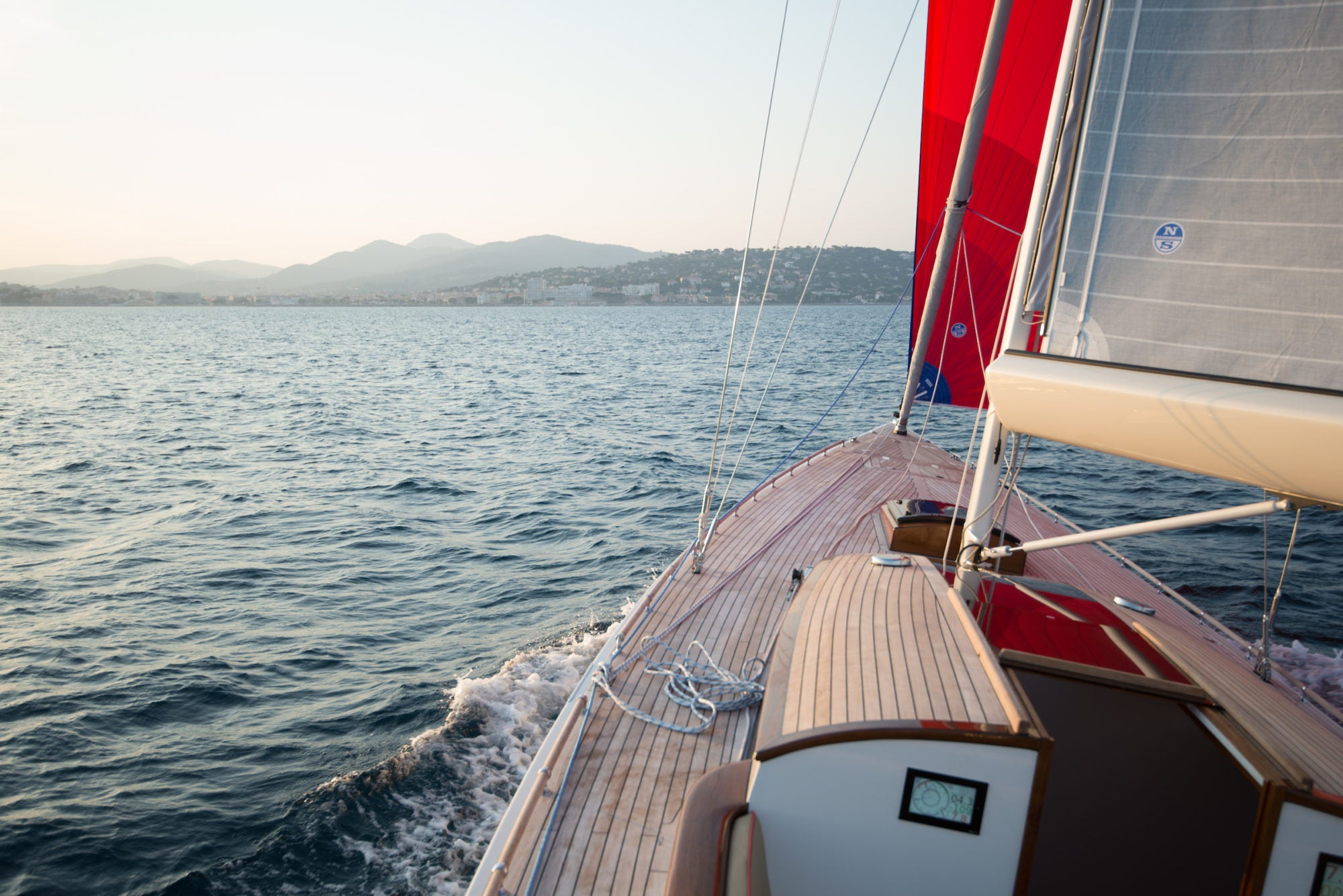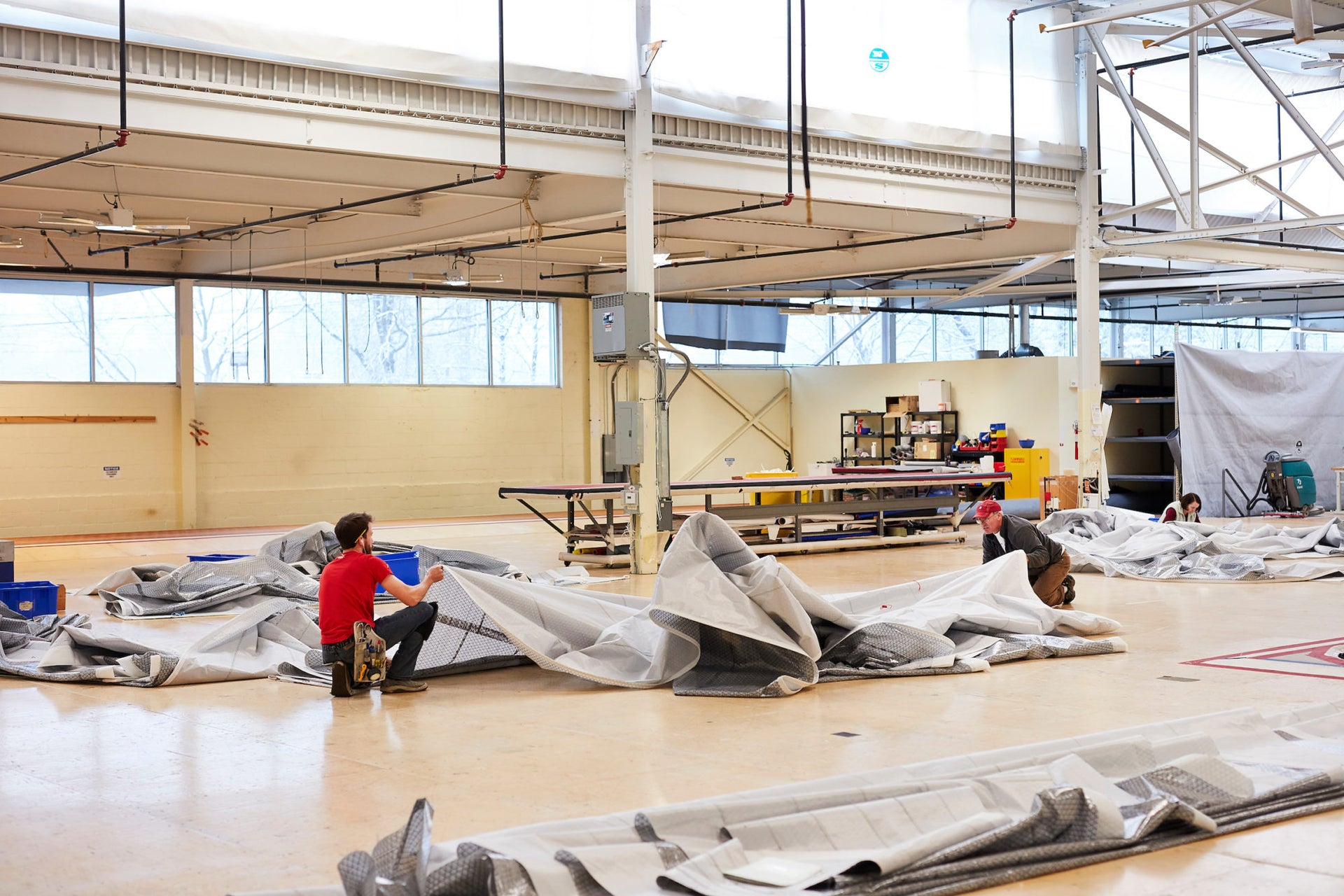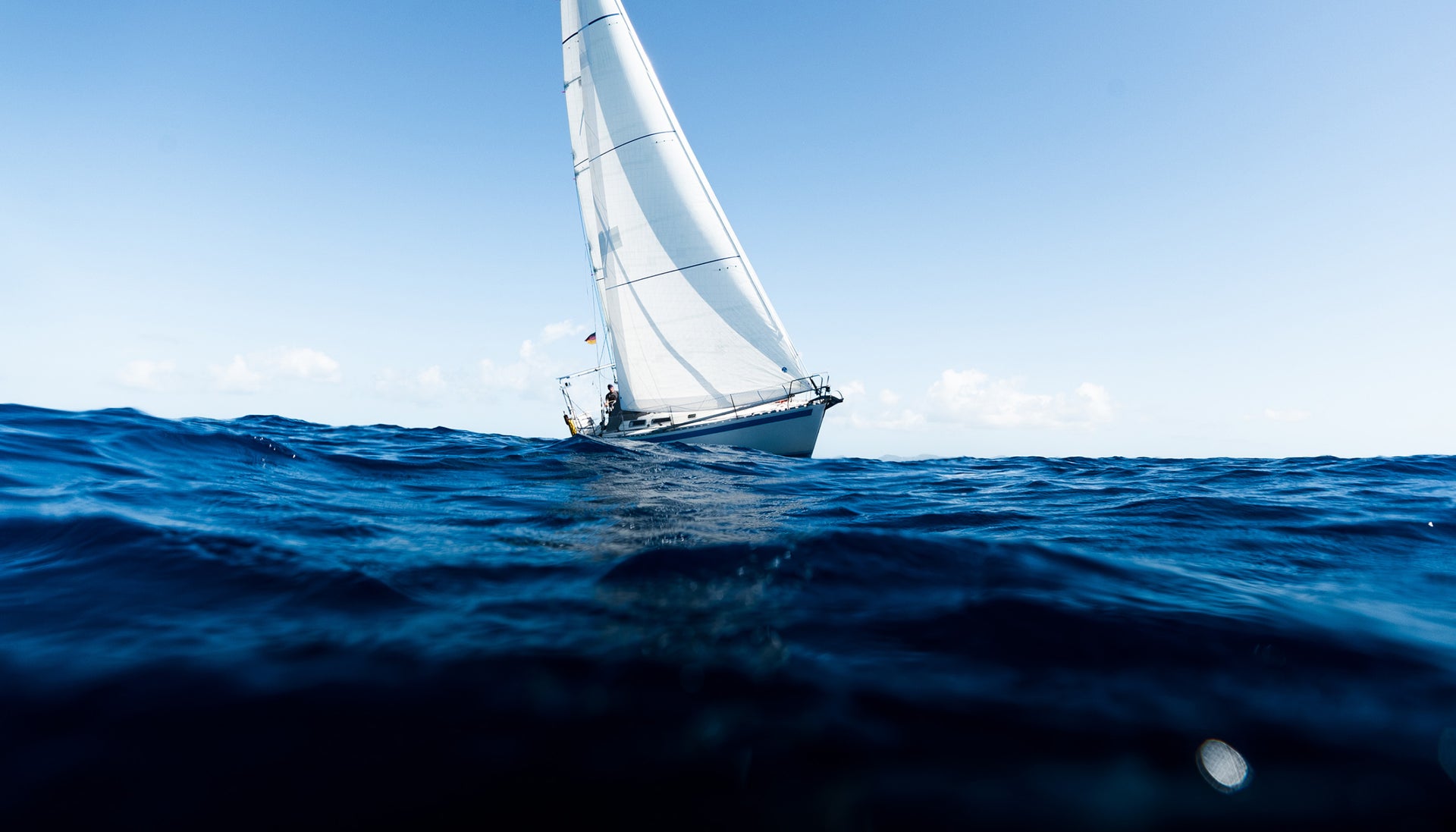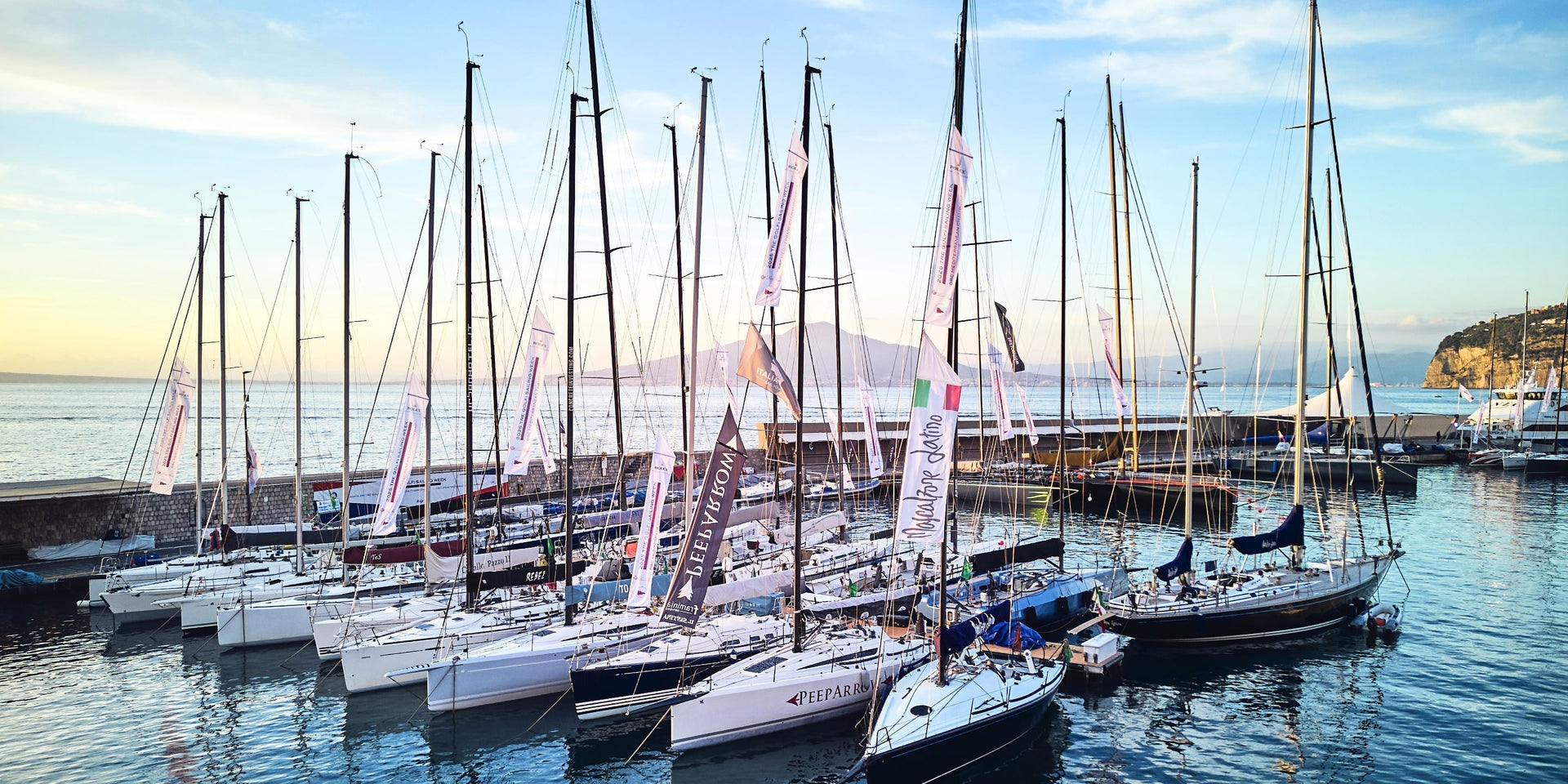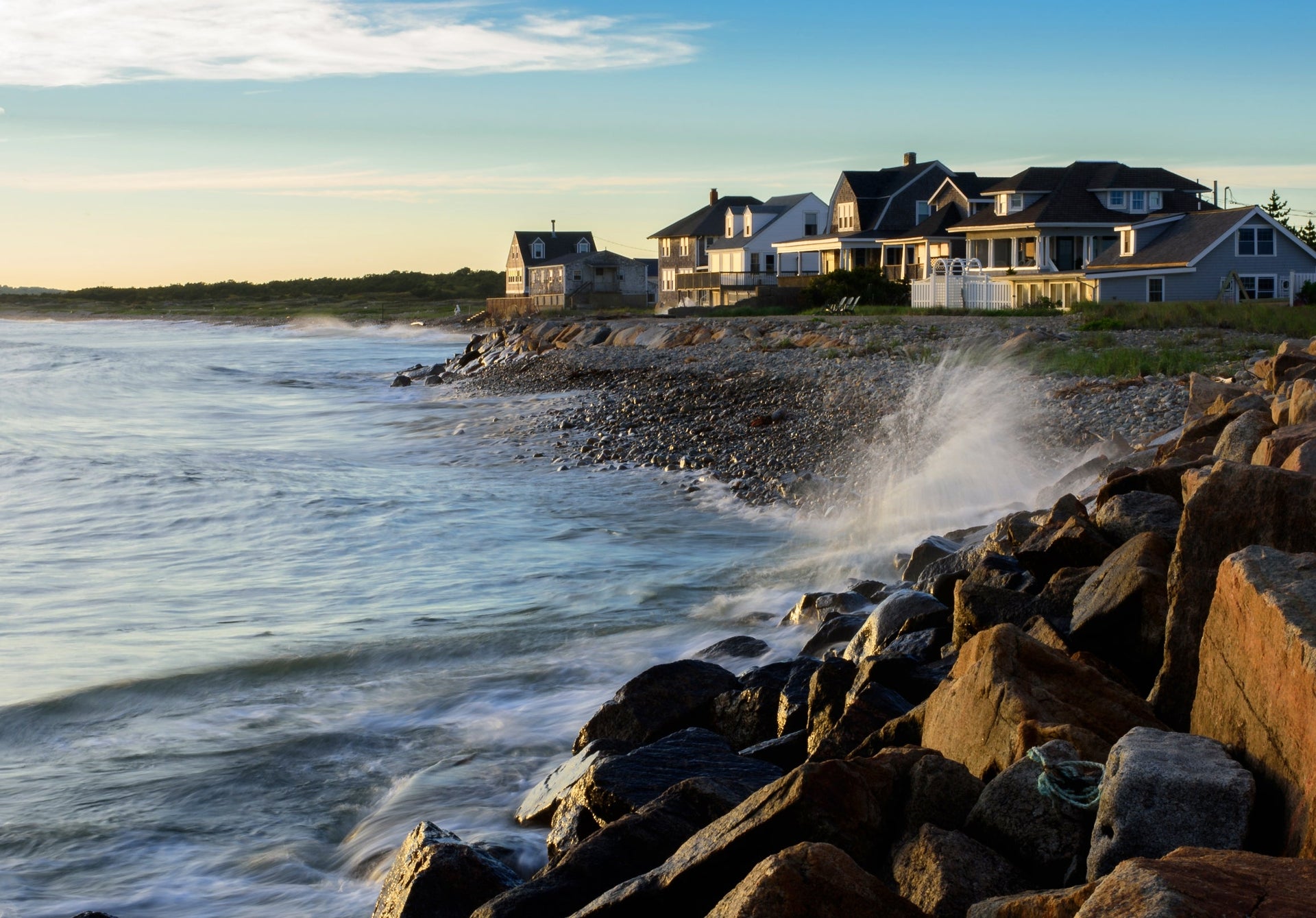HURRICANE SEASON PREP
HURRICANE SEASON PREP
North Sails Experts Share Their Tips
 Once again, the experts have predicted an active hurricane season this year, but in 2020, preparations will be made within the context of COVID-19. As a result, boat owners must consider changes to their annual plans to address threats to their boat and their health, as the season begins June 1.
Once again, the experts have predicted an active hurricane season this year, but in 2020, preparations will be made within the context of COVID-19. As a result, boat owners must consider changes to their annual plans to address threats to their boat and their health, as the season begins June 1.
Run or Hide?
The decision to run from a storm or hunker down is easier for some. Boats on trailers can be protected in a number of ways. A rented warehouse can cost far less than damage from blowing debris. If a boat's left outside, consider filling the cockpit or bilge with water to help weigh it down, place blocks beneath the trailer frame on either side of the wheels, and then deflate the tires completely. Twist or drill auger-type tie-down anchors into the ground, tie the boat to the trailer, tie the boat to those anchors, and remove everything you can. For larger keelboats, finding shelter often requires more planning. According to BoatUS, "the choice of locations is the single most important decision a boat owner has to make before a storm. It dwarfs all others." Boats on the hard are less likely to suffer serious damage on shore, even if toppled. If you'll stay afloat, investigate a marina's piling height and depth, floating vs. fixed docks, and the comprehensiveness of its operator's storm plan. Additionally, owners need to know their marina's policy and state law very well to ensure they understand their rights and responsibilities in a storm with regard to the facility. Many insurance policies require cruisers to exit latitudes perceived to be more hurricane-prone. In a year when the Bahamas and many Caribbean countries have discouraged visitors with quarantines and lockdowns, marinas in the Carolinas, Chesapeake and further north may have less availability. Of more concern, in April, states like Rhode Island took a hard line toward anyone arriving on the water from out of state, either prohibiting transient boaters or imposing a two-week quarantine before coming ashore. If your insurance requires to you leave one part of the world, make sure you have well-thought out plans for arriving at your destination in case such policies resume.Supplies
In the past, hurricane preparation involved hours inside West Marine or other chandleries buying rope, bumpers, and other supplies. Any specific hurricane threat will likely overcome this year's social-distancing concerns, but advanced preparation can mitigate both risks. Dust off last year's list of all the materials you will need to prepare your boat. Combine resources with others to buy spools of mooring rope or chain at deep discounts. After familiarizing yourself with your vendor's return policy on hurricane-related items, buy online, for home delivery or curbside pickup.
Sails
Without question, plan to remove your sails from your boat long prior to the storm. If you're familiar with the process you'll know how long it takes, but if it's been a while, anticipate two people will need at least an hour total for the main and genoa on a 40-footer, double that on a larger mainsail with full battens. If your sails haven't been serviced in a while, most North Sails facilities will be open leading up to the storm and able to store them for review and regular repair after the threat has passed, but call ahead to ensure staff isn't securing their own homes when you want to drop by. If curbside drop-off remains the preferred practice, you may be asked to provide all your contact information and work required ahead of time. If you wait too long and have to leave the sails in place, wrap them tightly, using a spinnaker or spare genoa halyard to "barber-pole" the furled genoa, and spare line to lash the mainsail tightly to the boom. Remember, even tightly-wrapped sails like this greatly increase the boat's windage and load and chafe on mooring lines so consider this a last resort.Personal Safety
The loss of life from 2019's Hurricane Dorian in the Bahamas will never be fully known. A stationary Category 5 storm wreaked unprecedented devastation on even well-fortified structures, and should remind us all that personal safety comes ahead of protecting our boat or other replaceable items. Liveaboard cruisers in the path of a storm may have to rely on local hurricane shelters for this last-resort protection, and in the era of face-masks and hand sanitizer, should have plenty of each to increase their safety when enclosed with dozens of area residents during a storm.Next Year
Hopefully 2020's preparations will be time well-wasted, and storms will stay out to sea. If so, learn from the experience. Just like after a regatta or long passage, as you let down your guard in the Fall, ask yourself what you did well, and what could have been improved, and make notes for next year. Hopefully the 2021 hurricane season will just be another typical "above average" season without the parallel viral threat complicating our plans.